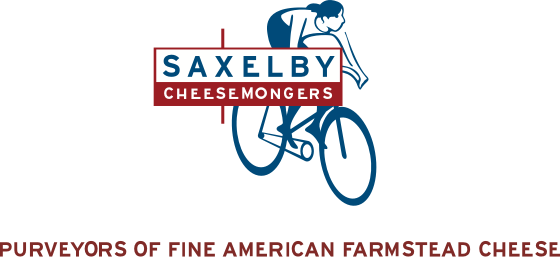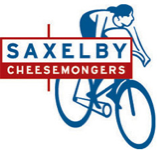
You may recognize Shelburne Farms as the makers of this two-year-aged cheddar, but did you know this 1,400-acre estate is also a non-profit living museum of sustainable agriculture? Dating back to the 1800s, when descendants of the Vanderbilt family established the farm around Vermont's Lake Champlain, Shelburne puts as much work into education as their cheese and maple syrup operations. We caught up with Tom Perry, the cheese sales manager of Shelburne, to learn more about what that work involves, and why it can't be separated from their delicious cheese.
"We feel it's important to acknowledge our beginnings," Tom says, explaining that while the farm may be associated with the Vanderbilt name, it resides on unceded lands of the Winooskik band of the Abenaki Natives that continue to call the region home.
Shelburne has had many beginnings, including its reinvention as a non-profit in 1972 and the estate being willed to the farm in 1984. By that point, commercial farming operations on the property had declined. To protect the land from residential development, Shelburne's owners transformed it into a center for sustainability education—a bold move at the cusp of America's food revolution. In this model, cheese isn't just a product of the farm's gorgeous Brown Swiss cows: it's a demonstration of sustainable agriculture in action, open to the public.

Sustainability is "at the core of everything we do," Tom explains. Cattle are raised on pasture that's minimally fussed with, so native marsh grasses can thrive; "we've spent 40 years restoring native flora to our grasslands," he says. Nitrogen-rich fertilizers could easily speed up that growth, but using them could also cause algae blooms in the nearby lake due to runoff from storms, so they are avoided. Staff keep a close eye on their herd for the same reason, keeping them from the shoreline where innocently dropped cowpies could cause environmental damage to the lake.
In pre-pandemic times, the farm hosted visits as often as 30 times a month during the busy season. It has organized programs for children from preschool age to teenagers, as well as community education programs that use food and farm life as a means of connecting students to the soil. Visitors can watch cheese get made too, of course; from May through October you'll see thousands of gallons of milk getting stirred, cut, or placed into 40 pound molds.
Over the past couple years these activities have taken a new form on Zoom, allowing a new kind of access from curd nerds and sustainability-minded people around the country. This year the farm plans to resume some of these programs in-person, as safety allows come May, when the farm usually opens to visitors for the season.

So why cheddar, and what does making cheese have to do with sustainability? "The farm's output in the 1970s was raw fluid milk," Tom says. "Back then and even more exacerbated now, dairy farming in fluid milk doesn't necessarily bring in the returns that it should for the amount of dedication that goes into caring for the animals." Turning that milk into a "value-added" product like cheese was "a logical step." When the farm started making cheese in the early 80s, cheddar was king in Vermont; it was a natural choice for the farm's raw milk, as cheddar is aged long enough to meet FDA requirements for unpasteurized dairy.
Making long-aged cheddar is a relatively simple process compared to some other cheese styles. That matters for sustainability too, which is about carefully managing all the resources on your farm, including available labor.
Which isn't to say all small dairy farms should necessarily get into the cheddar business. "The farm is an example of how you can practice sustainability," Tom says. "It's not the only way to practice what we're trying to teach."
If you find yourself in the Lake Champlain region during the warmer months of the year, pay a visit to this dynamic estate. Its famed inn and restaurant are scheduled to reopen this year, and in addition to planned events, the farm has miles of trails you can wander while soaking up the natural beauty of the Northeast Kingdom. And if you can't visit in person, give their tangy, balanced cheddar a try. It's a historic cheese from a fascinating farm that's continually reinventing itself to ensure a sustainable future.
Photos courtesy of Shelburne Farm, shot by Marshall Webb

